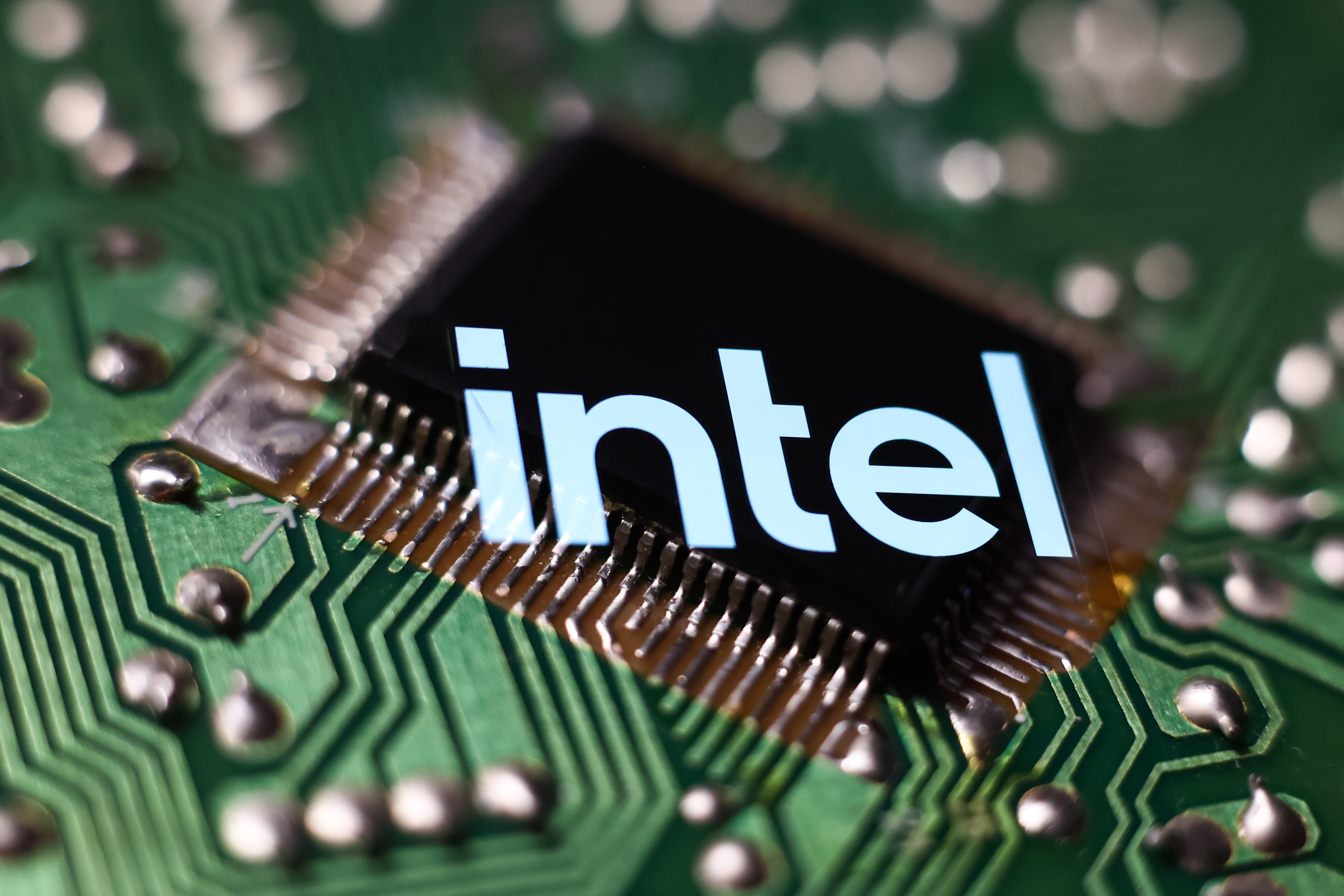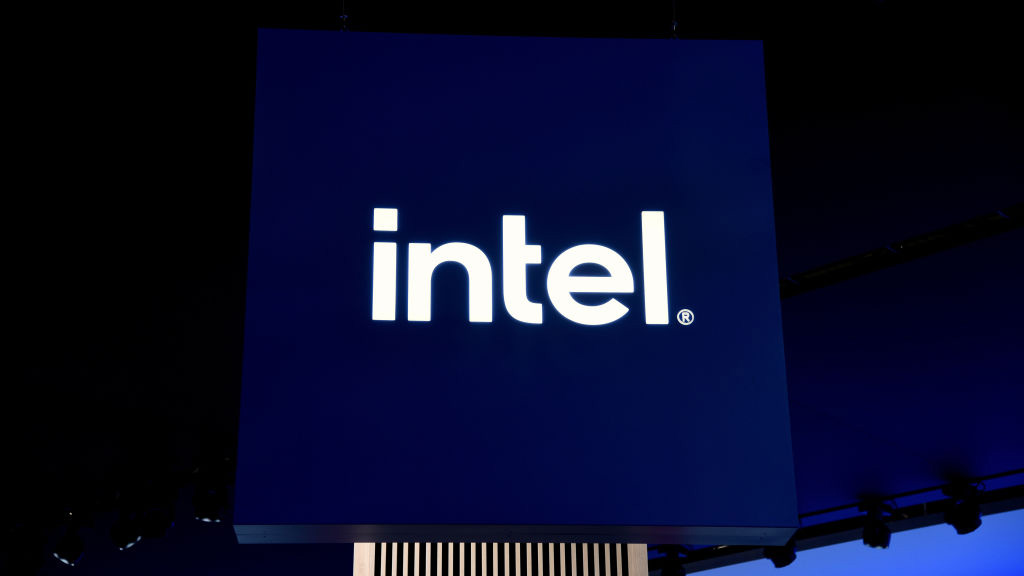Intel's profits plunge 90 per cent
The chipmaker takes a battering in its fourth quarter, as the worsening global economy and investment losses start to add pressure to its bottom line.


Intel reported late yesterday one of it worst quarters in its history, as profit for its fourth quarter nosedived 90 per cent.
The chipmaker said it had made $234 million (157 million) net profit for the quarter ended 27 December 2008, compared to $2.27 billion (1.5 billion) in the same quarter of last year.
The figures also fell short of analyst expectations of $257 million (172 million) net profit for the quarter, but was in line with its own, lowered revenue forecast of $8.2 billion (5.5 billion).
But total revenue, including from microprocessors and chipsets, was still down 23 per cent year-on-year and 19 per cent from the previous quarter.
The figures included a loss of $1.1 billion (736 million) from equity investments and interest, primarily due to a billion-dollar reduction in the value of Intel's investments in Clearwire, Intel said.
It also chose not to give any guidance on revenue for the first quarter of 2009, blaming "economic uncertainty and limited visibility".
And it said it had taken steps to mitigate the affect of the global slowdown by entering new markets and cutting its operational costs by about $3 billion (2 billion) since 2006.
Get the ITPro daily newsletter
Sign up today and you will receive a free copy of our Future Focus 2025 report - the leading guidance on AI, cybersecurity and other IT challenges as per 700+ senior executives
Paul Otellini, Intel president and chief executive, said that restructuring the firm had saved $800 million (535 million) in 2008, with three per cent fewer staff, now totalling 84,000 employees.
"Intel has weathered difficult times in the past, and we know what needs to be done to drive our success moving forward," Otellini said.
He added that 32-nanometer process technology development would be accelerated to reduce chip-manufacturing costs and make integrated chips for the likes of set-top boxes and televisions as well.
And the chipmaker also said its new Nehalem chip microarchitecture should start appearing in more desktops and laptops by the second half of the year, having launched its first Nehalem-based Core i7 chips for high-end gaming desktops in November.
A 25-year veteran enterprise technology expert, Miya Knights applies her deep understanding of technology gained through her journalism career to both her role as a consultant and as director at Retail Technology Magazine, which she helped shape over the past 17 years. Miya was educated at Oxford University, earning a master’s degree in English.
Her role as a journalist has seen her write for many of the leading technology publishers in the UK such as ITPro, TechWeekEurope, CIO UK, Computer Weekly, and also a number of national newspapers including The Times, Independent, and Financial Times.
-
 Should AI PCs be part of your next hardware refresh?
Should AI PCs be part of your next hardware refresh?AI PCs are fast becoming a business staple and a surefire way to future-proof your business
By Bobby Hellard
-
 Westcon-Comstor and Vectra AI launch brace of new channel initiatives
Westcon-Comstor and Vectra AI launch brace of new channel initiativesNews Westcon-Comstor and Vectra AI have announced the launch of two new channel growth initiatives focused on the managed security service provider (MSSP) space and AWS Marketplace.
By Daniel Todd
-
 Gaining timely insights with AI inferencing at the edge
Gaining timely insights with AI inferencing at the edgeWhitepaper Business differentiation in an AI-everywhere era
By ITPro
-
 Scaling AI from pilot to production: Maximize AI impact with HPE & Intel
Scaling AI from pilot to production: Maximize AI impact with HPE & IntelWhitepaper Transform AI proof-of-concepts into full-scale implementations
By ITPro
-
 UK supercomputer boom as HPE and Dell receive funding for new AI cluster
UK supercomputer boom as HPE and Dell receive funding for new AI clusterNews The UK’s AI computing capabilities will increase by an order of magnitude in 2024
By Rory Bathgate
-
 AI gold rush continues as Hugging Face snags $235 million from IBM
AI gold rush continues as Hugging Face snags $235 million from IBMNews The investment round, which brings the company's valuation to $4.5 billion, also includes Amazon, Google, Intel, and Salesforce
By Richard Speed
-
 Why is ASUS reviving Intel’s NUC mini-PC line?
Why is ASUS reviving Intel’s NUC mini-PC line?News The diminutive PC is to rise again while analysts look for the business case
By Richard Speed
-
 Intel targets AI hardware dominance by 2025
Intel targets AI hardware dominance by 2025News The chip giant's diverse range of CPUs, GPUs, and AI accelerators complement its commitment to an open AI ecosystem
By Rory Bathgate
-
 Why aren’t factories as smart as they could be?
Why aren’t factories as smart as they could be?Whitepaper How edge computing accelerates the journey to a remarkable factory
By ITPro
-
 Who needs Intel vPro®, An Intel® Evo™ Design, anyway?
Who needs Intel vPro®, An Intel® Evo™ Design, anyway?Sponsored With flexible work on the up, the demand for high performance on-the-go business laptops has never been greater
By ITPro